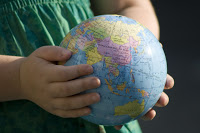The committee defined an earthquake-resilient nation as “one in which its communities, through mitigation and predisaster preparation, develop the adaptive capacity to maintain important community functions and recover quickly when major disasters occur.” – National Institute of Standards and Technology, New Study Maps Out Steps to Strengthen U.S. Resilience to Earthquakes
The adaptation projects made possible by the WCS Climate Adaptation Fund will increase the adaptive capacity of wildlife and their habitats to new conditions precipitated by climatic changes. – Wildlife Conservation Society, press release
But the one competence that I now realize is absolutely essential for leaders – the key competence – is adaptive capacity. Adaptive capacity is what allows leaders to adapt quickly and intelligently to relentless change. – Warren Bennis, On Becoming a Leade
Adaptive capacity is an idea that applies to ecological and human systems, and refers to the ability of that system to manage change while maintaining integrity or without losing function. (Species extinction is one way to manage change – but it doesn’t maintain integrity for the species!) How great the adaptive capacity of a system is determines how well it can manage change.
How does this apply to parenting, and to children, and courage? The most fundamental human system is the individual. A person who is rigid physically, emotionally, intellectually – an inflexible person – is not going to adapt well to change. For many people, change is an alarming prospect; yet we know change will come no matter what. Strengthening our courage and our children’s courage may be a useful way to develop adaptive capacity. It’s also possible that it goes the other way – developing our adaptive capacity may strengthen our courage! Maybe it goes both ways at the same time. Maybe they are the same thing!
We have talked from the beginning about strengthening all six types of courage by trying new things. It may be that the process of trying new things – any new things – counts more than what the things are. Our willingness to experiment, break old habits, question our paradigms, risk making mistakes and greet change as a friend rather than an enemy may help us live longer and happier lives.
This is not about being changed by exterior forces, but changing from within as circumstances (our environment, our social relationships, our knowledge) changes. Nourishing our children’s adaptive capacity may be as important as nourishing their growing bodies. Adaptive capacity is now a buzzword in longevity research, sustainability, leadership studies and business. Let’s make it a buzzword for parenting, too.

